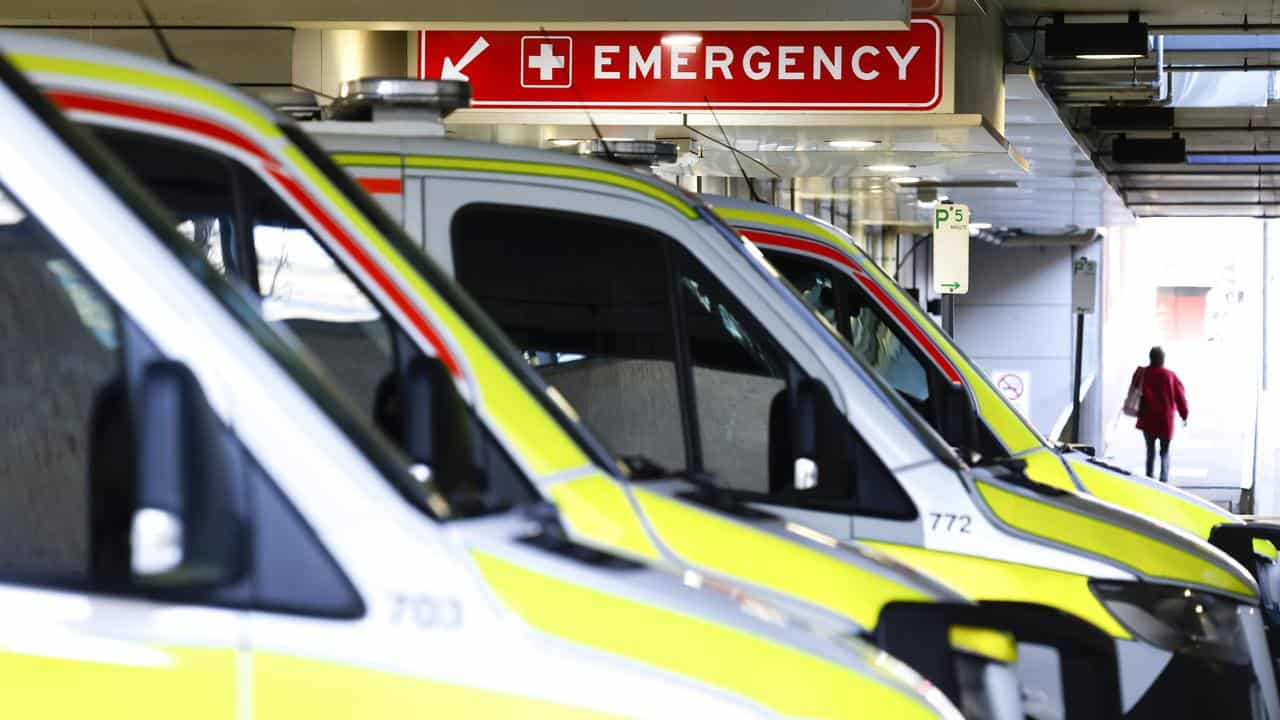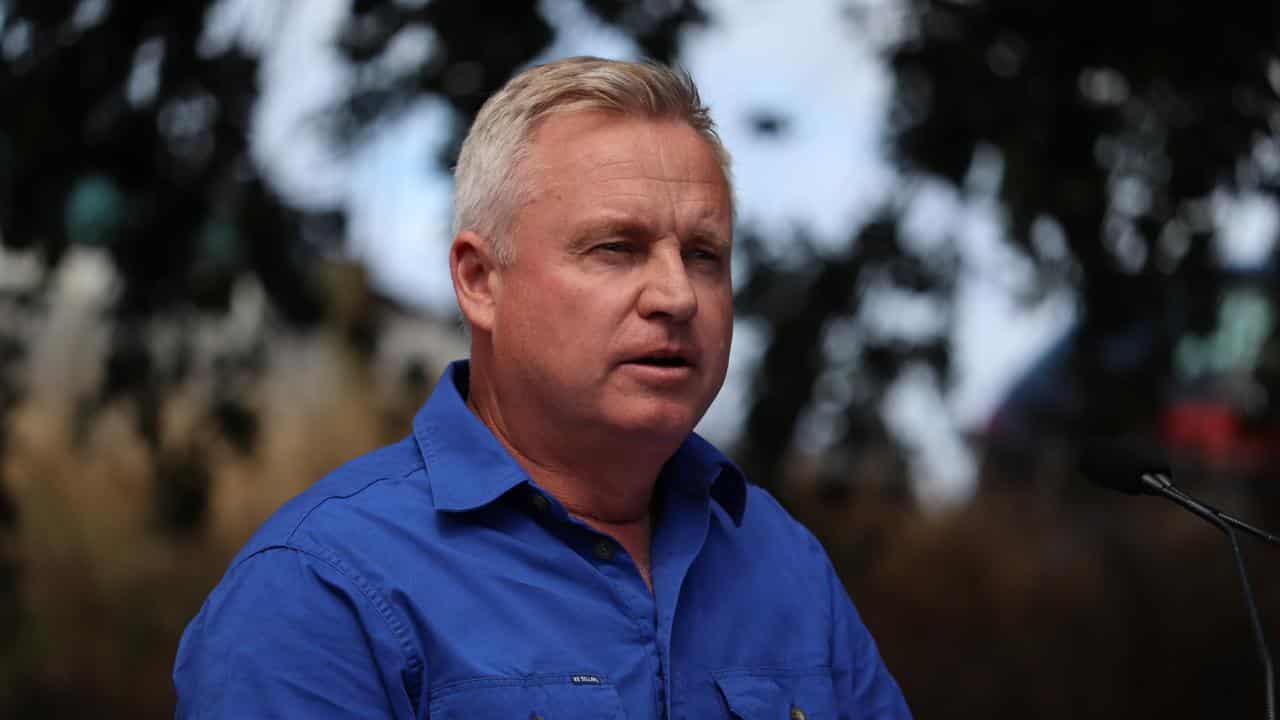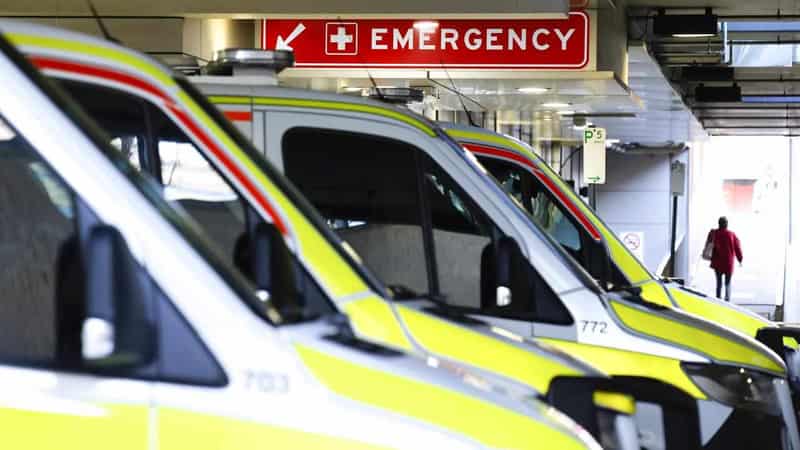
Nurses and midwives at Tasmania's two major hospitals are walking off the job over a Liberal state election pledge to "ban" ambulance ramping.
The Liberals, who are aiming for a fourth term at the March 23 poll, want to introduce a protocol in 2026 requiring patients to be transferred from ambulances to emergency departments within 30 minutes.
Premier Jeremy Rockliff has described the move as a ban on ramping, which occurs when patients are unable to be shifted from ambulances to a hospital.
A mandated 60-minute transfer window is being rolled out across the state in March, with the Liberals promising to move to 45 minutes in 2025.

Australian Nursing and Midwifery Federation Tasmania secretary Emily Shepherd said the policy would shift the risk from ambulances to hospitals.
Ms Shepherd said the fundamental issue behind ramping was access to beds as well as patient flow.
"Banning ambulance ramping and striking an agreement to offload ramped patients does not fix the fundamental issue," she said.
"If the government is serious about enabling access and flow, then that is where they should be focusing their energy.
"Otherwise ... patients will end up ramped inside hospital corridors, without the sufficient number of nurses and doctors needed to provide satisfactory care."
Federation members have scheduled stop-work meetings at the Launceston General Hospital on Thursday and Royal Hobart Hospital on Friday.
Health Minister Guy Barnett has previously indicated patients would only be transferred if safe to do so under the policy.
The Liberals have promised 44 more full-time doctors and 25 full-time nurses at the Royal Hobart Hospital to alleviate pressure, as well as more rural and regional GPs.
Mr Rockliff said his party was committed to introducing the policy.
"We are having a measured response to banning ramping," he said on Thursday.
"We’ll have a measured transition to 30 (minutes) ... this can be achieved."
In February, the head of Ambulance Tasmania told an inquiry 25 per cent of emergency cases did not receive an ambulance within the desired time-frame.
The Australian Medical Association has raised concerns about the Liberal's policy, while the Health and Community Service Union, which represents ambulance officers, was pleased paramedics would be freed up but has sought more detail.
Ms Shepherd said the federation could pursue further industrial action or an emergency hearing with the state's industrial commission if the policy was implemented without addressing other critical issues.
She has called for access and flow issues to be addressed as well as more support for paramedics responding to triple-zero calls.









